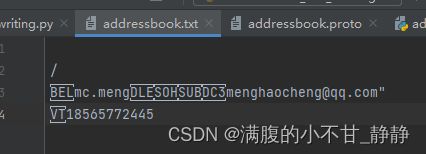- 深度讨论Python for循环
观智能
python开发语言
作者的其他文章推荐:强化学习再受关注!for循环使用于遍历可迭代对象的Python语句,工作原理如下:#for循环foriteminiterable:print(item)#等价于iterator=iter(iterable)#获取迭代器whileTrue:try:item=next(iterator)#获取下一个元素print(item)exceptStopIteration:break#迭代结
- Python第六章08:元组操作练习题
苹果.Python.八宝粥
python开发语言
#元组定义操作练习题"""定义一个元组,内容是:('周杰伦',11,['football','music']),记录一个学生的信息(姓名、年龄、爱好)请通元组(tuple)的功能,对其进行如下操作:1.查询其年龄所在的下标位置2.查询学生的姓名3.删除学生爱好中的football4.增加爱好:coding"""my_tuple=('周杰伦',11,['football','music'])#1.查
- Python第六章07:元组的定义和操作
苹果.Python.八宝粥
python前端开发语言
#tuple元组的定义和操作#tuple元组定义用小括号:(1,2,3,4,5),可以是不同类型元素#给变量定义元组时,写括号不写tuple:a=(1,2,3,4,5)#变量=()变量=tuple()空元组变量#tuple元组定义完成后,不可以修改,但是,如果元组中嵌套了一个列表时,元组中列表的内容可以修改#封装数据后,不希望被篡改数据,就使用元组tuple#1.定义一个元组t1=("halibo
- 利用Python爬虫获取Shopee(虾皮)商品详情:实战指南
小爬虫程序猿
python爬虫开发语言
在跨境电商领域,Shopee(虾皮)作为东南亚及台湾地区领先的电商平台,拥有海量的商品信息。无论是进行市场调研、数据分析,还是寻找热门商品,获取Shopee商品详情都是一项极具价值的任务。然而,手动浏览和整理这些信息显然是低效且容易出错的。幸运的是,通过编写Python爬虫程序,我们可以高效地完成这一任务。本文将详细介绍如何利用Python爬虫获取Shopee商品详情,并提供完整的代码示例。一、为
- 在Mac M1/M2芯片上完美安装DeepCTR库:避坑指南与实战验证
ku_code_ku
机器学习macos推荐算法推荐系统
让推荐算法在AppleSilicon上全速运行概述作为推荐系统领域的最经常用的明星库,DeepCTR集成了CTR预估、多任务学习等前沿模型实现。但在AppleSilicon架构的Mac设备上,安装过程常因ARM架构适配、依赖库版本冲突等问题受阻。本文通过20+次环境搭建实测,总结出最稳定的安装方案。关键版本说明(2024年验证)组件推荐版本注意事项Python3.10.x向下兼容至3.7,但3.1
- 数据库数值函数详解
web安全工具库
数据库oraclejvm
各类资料学习下载合集https://pan.quark.cn/s/8c91ccb5a474数值函数是数据库中用于处理数值数据的函数,可以用于执行各种数学运算、统计计算等。数值函数在数据分析及处理时非常重要,能够帮助我们进行数据的聚合、计算和转换。在本篇博客中,我们将详细介绍常用的数据库数值函数,并通过Python和SQLite进行示例,帮助您理解和应用这些函数。1.数值函数的基本概念数值函数是用于
- Python中Requests的Cookies的简单使用
北条苒茗殇
python开发语言Requests
概述Python的Requests库中有一个cookies,是用于管理HTTPCookie的工具,可以像字典一样操作Cookie,支持自动处理作用域(域名、路径)和持久化,cookies是一个RequestsCookieJar的类型。一、概念1.作用自动存储服务器返回的Cookie根据请求域名和路径进行自动发送匹配的Cookie支持手动添加、修改、删除Cookie2.RequestsCookieJ
- Pytest基础使用
北条苒茗殇
pytest
概述Pytest是Python里的一个强大的测试框架,灵活易用,可以进行功能,自动化测试使用,可以与Requests,Selenium等进行结合使用,同时可以生成Html的报告。一、Pytest的基本使用在未指定Pytest的配置文件时,会对以下文件进行执行:test_*.py,如:test_1.py*_test.py,如:1_test.py会对以下的类和函数进行执行:类:以Test_开头的类,如
- Visual Studio Code官网下载地址及使用技巧(含常用的拓展插件推荐)
ITCTCSDN
vscodeide编辑器
VisualStudioCode(简称“VSCode”)是Microsoft于2015年4月发布的可运行于MacOS、Windows和Linux之上的跨平台源代码编辑器,它具有对JavaScript,TypeScript和Node.js的内置支持,并具有丰富的其他语言(例如C++,C#,Java,Python,PHP,Go)和运行时(例如.NET和Unity)扩展的生态系统。VisualStudi
- python中rmdir和rmtree的用法
Gin387
python
shutil.rmtree()是Python中shutil模块提供的一个函数,用于递归删除整个目录树(包括子目录和所有文件)。os.rmdir()(只能删除空目录)不同,shutil.rmtree()可以强制删除非空目录importshutil#删除指定目录及其所有内容shutil.rmtree('path/to/directory')
- 构建 Python 插件架构:打造灵活可扩展的模块化应用
全栈探索者chen
pythonpython架构开发语言学习机器学习程序人生插件
构建Python插件架构:打造灵活可扩展的模块化应用前言在现代软件开发中,单一的代码库往往难以满足不断变化的业务需求和多样化的扩展场景。如何设计一个应用,使其既能保持核心功能的稳定,又能轻松集成第三方功能、模块或定制化扩展?答案就是——插件架构。通过插件架构,你可以让应用具备极高的灵活性,支持动态加载、无缝扩展以及解耦维护。本文将深入探讨如何在Python中设计和构建一个插件架构。从核心概念、模块
- 31天Python入门——第11天:挑战一口气把闭包·装饰器讲明白
安然无虞
Python手把手教程python开发语言后端pyqt
你好,我是安然无虞。文章目录1.闭包扩展知识:闭包的自由变量是如何存储的2.装饰器装饰器的应用场景3.补充练习1.闭包闭包是指在一个函数内部定义的函数,并且这个内部函数可以访问外部函数的变量、参数.换句话说,闭包是一个包含了函数及其相关引用环境的组合体.在Python中,当一个函数返回了内部函数的引用时,这个内部函数可以访问并操作外部函数的局部变量,它就创建了一个闭包,即使外部函数已经执行完毕,它
- opencv python rgb转yuv_OpenCV之色彩空间与色彩空间转换
xiao fei
opencvpythonrgb转yuv
python代码:importcv2ascvsrc=cv.imread("test.jpg")cv.namedWindow("rgb",cv.WINDOW_AUTOSIZE)cv.imshow("rgb",src)#RGBtoHSVhsv=cv.cvtColor(src,cv.COLOR_BGR2HSV)cv.imshow("hsv",hsv)#RGBtoYUVyuv=cv.cvtColor(sr
- 【AI大模型】搭建本地大模型GPT-NeoX:详细步骤及常见问题处理
qzw1210
gpt人工智能深度学习
搭建本地大模型GPT-NeoX:详细步骤及常见问题处理GPT-NeoX是一个开源的大型语言模型框架,由EleutherAI开发,可用于训练和部署类似GPT-3的大型语言模型。本指南将详细介绍如何在本地环境中搭建GPT-NeoX,并解决过程中可能遇到的常见问题。1.系统要求1.1硬件要求1.2软件要求操作系统:Linux(推荐Ubuntu20.04或更高版本)CUDA:11.2或更高版本Python
- python 列表倒序输出
小琳爱分享
pythonpython
python列表倒序输出#使用reverseli1=[1,6,4,3,7,9]li2=['a','m','s','g']li1.reverse()li2.reverse()print(li1,li2)#利用list切片li1=[1,6,4,3,7,9]li2=['a','m','s','g']print(li1[::-1])print(li2[::-1])#利用算法进行转换,这里需要用到深层cop
- python怎么输出倒序
hakesashou
python基础知识pythonjava服务器
python怎么输出倒序?下面给大家介绍四种方法:创建测试列表>>> lst = [1,2,3,4,5,6]方法1:>>> lst.reverse() #reverse()反转>>> lst[6, 5, 4, 3, 2, 1]方法2:>>> lst1 = [i for i in reversed(lst)] #reversed只适用于与序列(列表、元组、字符串)>>> lst1[6, 5, 4,
- chatgpt赋能python:Python怎么倒序列表
aijinglingchat
ChatGptpythonchatgpt人工智能计算机
Python怎么倒序列表列表是Python中最常用的数据结构之一,但在实际使用时,有时需要将列表进行倒序排列。Python提供了多种方法来实现这个需求,本文将简要介绍这些方法以及它们的使用场景。方法1:使用reverse()函数使用列表的reverse()方法是Python中最简单直接的方法来倒序列表。该方法会将原列表倒置。lst=[1,2,3,4,5]lst.reverse()print(lst
- “统计视角看世界”专栏阅读引导
赛卡
统计视角看世界信息可视化数据分析
根据文章主题和逻辑关系,我为您设计以下阅读引导方案:1.六西格玛基础2.帕累托图3.直方图4.散点图基础5.散点图高阶6.多变量可视化7.密度图进阶8.回归分析配套文字说明:入门基石(必读)《1.六西格玛遇上Python》→方法论总纲,建议优先精读基础三剑客(可并行)├─《2.帕累托图》→重点数据排序与决策├─《3.直方图》→数据分布核心工具└─《4.散点图》→数据探索第一视角高阶应用链(递进学习
- 自定义mavlink 生成wireshark wlua插件错误(已解决)
JasonComing
问题收集wiresharkwluamavlink
进入正题python3-mpymavlink.tools.mavgen--lang=WLua--wire-protocol=2.0--output=output/developmessage_definitions/v1.0/development.xml编译WLUA的时候遇到一些问题1.ERROR:SCHEMASV:SCHEMAV_CVC_ENUMERATION_VALID3765:0:ERRO
- 吐血整理 python最全习题100道(含答案)持续更新题目,建议收藏!
Bejpse
面试学习路线阿里巴巴python开发语言pycharmredisjava-ee
最近为了提升python水平,在网上找到了python习题,然后根据自己对于python的掌握,整理出来了答案,如果小伙伴们有更好的实现方式,可以下面留言大家一起讨论哦~已知一个字符串为“hello_world_yoyo”,如何得到一个队列[“hello”,”world”,”yoyo”]test=‘hello_world_yoyo’使用split函数,分割字符串,并且将数据转换成列表类型print
- 2024年第五届MathorCup数学应用挑战赛--大数据竞赛思路、代码更新中.....
宇哥预测优化代码学习
1024程序员节
欢迎来到本博客❤️❤️博主优势:博客内容尽量做到思维缜密,逻辑清晰,为了方便读者。⛳️座右铭:行百里者,半于九十。本文目录如下:目录⛳️研赛及概况一、竞赛背景与目的二、组织机构与参赛对象三、竞赛时间与流程四、竞赛要求与规则五、奖项设置与奖励六、研究文档撰写建议七、参考资料与资源1找程序网站推荐2公式编辑器、流程图、论文排版324年研赛资源下载4思路、Python、Matlab代码分享......⛳
- 2024MathorCup数学建模之——MathorCup奖杯”获得者经验思路分享
美赛数学建模
数学建模
一、经验分享1.工具选择:顺手即可。Matlab和Python都是比较主流的选择,二者的应用场合各有不同。Python在数据分析、深度学习方面的优势愈发明显,而Matlab更适合进行物理仿真和数值计算。不过随着Python社区不断发展,其功能也愈发全面与强大,因此我们比较推荐学有余力的情况下可以更早接触Python。2.模型算法:多多益善。不一定要精通所有的算法,但是手上至少要准备一些常用的算法(
- Python 用户账户(创建用户账户)
钢铁男儿
Python从入门到精通pythonsqlite数据库
Web应用程序的核心是让任何用户都能够注册账户并能够使用它,不管用户身处何方。在本章中,你将创建一些表单,让用户能够添加主题和条目,以及编辑既有的条目。你还将学习Django如何防范对基于表单的网页发起的常见攻击,这让你无需花太多时间考虑确保应用程序安全的问题。然后,我们将实现一个用户身份验证系统。你将创建一个注册页面,供用户创建账户,并让有些页面只能供已登录的用户访问。接下来,我们将修改一些视图
- 使用欧拉法数值求解微分方程的 Python 实现
神经网络15044
python深度学习算法python开发语言
编写函数y=Eular(x,h),使用欧拉法数值求解微分方程初值为函数Eular(x,h)中Cx为计算结束时微分方程x的值,h为计算步长再编写脚本,通过调用函数分别以不同步长(例如h=1.0,h=0.5,h=0.25)计算y(3),并分析步长和误差之间的关系。以下是使用欧拉法数值求解微分方程的Python实现。假设我们要求解的微分方程是dydx=f(x,y)\frac{dy}{dx}=f(x,y)
- 使用AirtableLoader轻松加载数据到Python
bavDHAUO
python开发语言
在现代软件开发中,数据的管理与使用非常关键。Airtable作为一种灵活的数据库应用,提供了简便且强大的数据处理方式。而通过使用AirtableLoader这种工具,可以轻松地将Airtable中的数据加载到Python项目中进行处理。技术背景介绍Airtable是一款集电子表格和数据库功能于一体的工具,它以其简单易用、强大的扩展性而受到众多开发者的喜爱。AirtableLoader是一个文档加载
- 【Python工具】Jupyter Notebook常用快捷键
清平乐的技术博客
Python高级应用由浅入深学Pythonjupyteridepython
1.JupyterNotebook的启动与停止环境为Windows10系统首先win+R进入命令提示符cmd,用cd命令切换到工作目录,键入命令jupyternotebook2.JupyterNotebook常用快捷键2.1模式切换当前cell侧边为蓝色时,表示此时为命令模式,按Enter切换为编辑模式当前cell侧边为绿色时,表示此时为编辑模式,按Esc切换为命令模式2.2命令模式快捷键H:显示
- Pytorch深度学习教程_9_nn模块构建神经网络
tRNA做科研
深度学习保姆教程深度学习pytorch神经网络
欢迎来到《深度学习保姆教程》系列的第九篇!在前面的几篇中,我们已经介绍了Python、numpy及pytorch的基本使用,进行了梯度及神经网络的实践并学习了激活函数和激活函数,在上一个教程中我们学习了优化算法。今天,我们将开始使用pytorch构建我们自己的神经网络。欢迎订阅专栏进行系统学习:深度学习保姆教程_tRNA做科研的博客-CSDN博客目录1.理解nn模块:(1)使用nn.Sequent
- Python 单例模式的 5 种实现方式:深入解析与最佳实践
做测试的小薄
测试高阶python单例模式自动化测试测试框架
单例模式(SingletonPattern)是一种经典的设计模式,其核心思想是确保一个类在整个程序运行期间只有一个实例,并提供一个全局访问点。这种模式在许多场景中非常有用,例如全局配置管理、日志记录器、数据库连接池等。然而,Python的灵活性使得实现单例模式有多种方式,每种方法都有其特点和适用场景。本文将详细介绍Python中实现单例模式的5种常见方法,并深入分析它们的优缺点以及适用场景,帮助您
- Python 爬虫实战:舞台剧与演出信息获取
西攻城狮北
python爬虫开发语言
作为一名对文化艺术活动和数据获取感兴趣的内容创作者,我决定利用Python爬虫技术抓取舞台剧与演出信息。这对于文艺爱好者、文化活动组织者以及相关研究人员来说,是一个极具价值的探索。一、项目背景舞台剧和各类演出活动丰富了人们的精神文化生活。许多城市都有专业的演出场馆,如国家大剧院、上海大剧院等,它们会定期发布演出信息。通过爬虫技术,我们可以自动化地获取这些演出信息,方便用户查询和分析。二、技术选型在
- LeetCode剑指offer题目记录4
t.y.Tang
LeetCode记录leetcodepython矩阵
leetcode刷题开始啦,每天记录几道题.目录剑指offer07.重建二叉树题目描述示例思路python改进剑指offer09.用两个栈实现队列题目描述示例思路python剑指offer10-1.斐波那契数列题目描述思路pythonC++剑指offer10-2.青蛙跳台阶问题问题描述思路C++剑指offer07.重建二叉树题目描述输入某二叉树的前序遍历和中序遍历的结果,请构建该二叉树并返回其根节
- linux系统服务器下jsp传参数乱码
3213213333332132
javajsplinuxwindowsxml
在一次解决乱码问题中, 发现jsp在windows下用js原生的方法进行编码没有问题,但是到了linux下就有问题, escape,encodeURI,encodeURIComponent等都解决不了问题
但是我想了下既然原生的方法不行,我用el标签的方式对中文参数进行加密解密总该可以吧。于是用了java的java.net.URLDecoder,结果还是乱码,最后在绝望之际,用了下面的方法解决了
- Spring 注解区别以及应用
BlueSkator
spring
1. @Autowired
@Autowired是根据类型进行自动装配的。如果当Spring上下文中存在不止一个UserDao类型的bean,或者不存在UserDao类型的bean,会抛出 BeanCreationException异常,这时可以通过在该属性上再加一个@Qualifier注解来声明唯一的id解决问题。
2. @Qualifier
当spring中存在至少一个匹
- printf和sprintf的应用
dcj3sjt126com
PHPsprintfprintf
<?php
printf('b: %b <br>c: %c <br>d: %d <bf>f: %f', 80,80, 80, 80);
echo '<br />';
printf('%0.2f <br>%+d <br>%0.2f <br>', 8, 8, 1235.456);
printf('th
- config.getInitParameter
171815164
parameter
web.xml
<servlet>
<servlet-name>servlet1</servlet-name>
<jsp-file>/index.jsp</jsp-file>
<init-param>
<param-name>str</param-name>
- Ant标签详解--基础操作
g21121
ant
Ant的一些核心概念:
build.xml:构建文件是以XML 文件来描述的,默认构建文件名为build.xml。 project:每个构建文
- [简单]代码片段_数据合并
53873039oycg
代码
合并规则:删除家长phone为空的记录,若一个家长对应多个孩子,保留一条家长记录,家长id修改为phone,对应关系也要修改。
代码如下:
- java 通信技术
云端月影
Java 远程通信技术
在分布式服务框架中,一个最基础的问题就是远程服务是怎么通讯的,在Java领域中有很多可实现远程通讯的技术,例如:RMI、MINA、ESB、Burlap、Hessian、SOAP、EJB和JMS等,这些名词之间到底是些什么关系呢,它们背后到底是基于什么原理实现的呢,了解这些是实现分布式服务框架的基础知识,而如果在性能上有高的要求的话,那深入了解这些技术背后的机制就是必须的了,在这篇blog中我们将来
- string与StringBuilder 性能差距到底有多大
aijuans
之前也看过一些对string与StringBuilder的性能分析,总感觉这个应该对整体性能不会产生多大的影响,所以就一直没有关注这块!
由于学程序初期最先接触的string拼接,所以就一直没改变过自己的习惯!
- 今天碰到 java.util.ConcurrentModificationException 异常
antonyup_2006
java多线程工作IBM
今天改bug,其中有个实现是要对map进行循环,然后有删除操作,代码如下:
Iterator<ListItem> iter = ItemMap.keySet.iterator();
while(iter.hasNext()){
ListItem it = iter.next();
//...一些逻辑操作
ItemMap.remove(it);
}
结果运行报Con
- PL/SQL的类型和JDBC操作数据库
百合不是茶
PL/SQL表标量类型游标PL/SQL记录
PL/SQL的标量类型:
字符,数字,时间,布尔,%type五中类型的
--标量:数据库中预定义类型的变量
--定义一个变长字符串
v_ename varchar2(10);
--定义一个小数,范围 -9999.99~9999.99
v_sal number(6,2);
--定义一个小数并给一个初始值为5.4 :=是pl/sql的赋值号
- Mockito:一个强大的用于 Java 开发的模拟测试框架实例
bijian1013
mockito单元测试
Mockito框架:
Mockito是一个基于MIT协议的开源java测试框架。 Mockito区别于其他模拟框架的地方主要是允许开发者在没有建立“预期”时验证被测系统的行为。对于mock对象的一个评价是测试系统的测
- 精通Oracle10编程SQL(10)处理例外
bijian1013
oracle数据库plsql
/*
*处理例外
*/
--例外简介
--处理例外-传递例外
declare
v_ename emp.ename%TYPE;
begin
SELECT ename INTO v_ename FROM emp
where empno=&no;
dbms_output.put_line('雇员名:'||v_ename);
exceptio
- 【Java】Java执行远程机器上Linux命令
bit1129
linux命令
Java使用ethz通过ssh2执行远程机器Linux上命令,
封装定义Linux机器的环境信息
package com.tom;
import java.io.File;
public class Env {
private String hostaddr; //Linux机器的IP地址
private Integer po
- java通信之Socket通信基础
白糖_
javasocket网络协议
正处于网络环境下的两个程序,它们之间通过一个交互的连接来实现数据通信。每一个连接的通信端叫做一个Socket。一个完整的Socket通信程序应该包含以下几个步骤:
①创建Socket;
②打开连接到Socket的输入输出流;
④按照一定的协议对Socket进行读写操作;
④关闭Socket。
Socket通信分两部分:服务器端和客户端。服务器端必须优先启动,然后等待soc
- angular.bind
boyitech
AngularJSangular.bindAngularJS APIbind
angular.bind 描述: 上下文,函数以及参数动态绑定,返回值为绑定之后的函数. 其中args是可选的动态参数,self在fn中使用this调用。 使用方法: angular.bind(se
- java-13个坏人和13个好人站成一圈,数到7就从圈里面踢出一个来,要求把所有坏人都给踢出来,所有好人都留在圈里。请找出初始时坏人站的位置。
bylijinnan
java
import java.util.ArrayList;
import java.util.List;
public class KickOutBadGuys {
/**
* 题目:13个坏人和13个好人站成一圈,数到7就从圈里面踢出一个来,要求把所有坏人都给踢出来,所有好人都留在圈里。请找出初始时坏人站的位置。
* Maybe you can find out
- Redis.conf配置文件及相关项说明(自查备用)
Kai_Ge
redis
Redis.conf配置文件及相关项说明
# Redis configuration file example
# Note on units: when memory size is needed, it is possible to specifiy
# it in the usual form of 1k 5GB 4M and so forth:
#
- [强人工智能]实现大规模拓扑分析是实现强人工智能的前奏
comsci
人工智能
真不好意思,各位朋友...博客再次更新...
节点数量太少,网络的分析和处理能力肯定不足,在面对机器人控制的需求方面,显得力不从心....
但是,节点数太多,对拓扑数据处理的要求又很高,设计目标也很高,实现起来难度颇大...
- 记录一些常用的函数
dai_lm
java
public static String convertInputStreamToString(InputStream is) {
StringBuilder result = new StringBuilder();
if (is != null)
try {
InputStreamReader inputReader = new InputStreamRead
- Hadoop中小规模集群的并行计算缺陷
datamachine
mapreducehadoop并行计算
注:写这篇文章的初衷是因为Hadoop炒得有点太热,很多用户现有数据规模并不适用于Hadoop,但迫于扩容压力和去IOE(Hadoop的廉价扩展的确非常有吸引力)而尝试。尝试永远是件正确的事儿,但有时候不用太突进,可以调优或调需求,发挥现有系统的最大效用为上策。
-----------------------------------------------------------------
- 小学4年级英语单词背诵第二课
dcj3sjt126com
englishword
egg 蛋
twenty 二十
any 任何
well 健康的,好
twelve 十二
farm 农场
every 每一个
back 向后,回
fast 快速的
whose 谁的
much 许多
flower 花
watch 手表
very 非常,很
sport 运动
Chinese 中国的
- 自己实践了github的webhooks, linux上面的权限需要注意
dcj3sjt126com
githubwebhook
环境, 阿里云服务器
1. 本地创建项目, push到github服务器上面
2. 生成www用户的密钥
sudo -u www ssh-keygen -t rsa -C "
[email protected]"
3. 将密钥添加到github帐号的SSH_KEYS里面
3. 用www用户执行克隆, 源使
- Java冒泡排序
蕃薯耀
冒泡排序Java冒泡排序Java排序
冒泡排序
>>>>>>>>>>>>>>>>>>>>>>>>>>>>>>>>>>
蕃薯耀 2015年6月23日 10:40:14 星期二
http://fanshuyao.iteye.com/
- Excle读取数据转换为实体List【基于apache-poi】
hanqunfeng
apache
1.依赖apache-poi
2.支持xls和xlsx
3.支持按属性名称绑定数据值
4.支持从指定行、列开始读取
5.支持同时读取多个sheet
6.具体使用方式参见org.cpframework.utils.excelreader.CP_ExcelReaderUtilTest.java
比如:
Str
- 3个处于草稿阶段的Javascript API介绍
jackyrong
JavaScript
原文:
http://www.sitepoint.com/3-new-javascript-apis-may-want-follow/?utm_source=html5weekly&utm_medium=email
本文中,介绍3个仍然处于草稿阶段,但应该值得关注的Javascript API.
1) Web Alarm API
&
- 6个创建Web应用程序的高效PHP框架
lampcy
Web框架PHP
以下是创建Web应用程序的PHP框架,有coder bay网站整理推荐:
1. CakePHP
CakePHP是一个PHP快速开发框架,它提供了一个用于开发、维护和部署应用程序的可扩展体系。CakePHP使用了众所周知的设计模式,如MVC和ORM,降低了开发成本,并减少了开发人员写代码的工作量。
2. CodeIgniter
CodeIgniter是一个非常小且功能强大的PHP框架,适合需
- 评"救市后中国股市新乱象泛起"谣言
nannan408
首先来看百度百家一位易姓作者的新闻:
三个多星期来股市持续暴跌,跌得投资者及上市公司都处于极度的恐慌和焦虑中,都要寻找自保及规避风险的方式。面对股市之危机,政府突然进入市场救市,希望以此来重建市场信心,以此来扭转股市持续暴跌的预期。而政府进入市场后,由于市场运作方式发生了巨大变化,投资者及上市公司为了自保及为了应对这种变化,中国股市新的乱象也自然产生。
首先,中国股市这两天
- 页面全屏遮罩的实现 方式
Rainbow702
htmlcss遮罩mask
之前做了一个页面,在点击了某个按钮之后,要求页面出现一个全屏遮罩,一开始使用了position:absolute来实现的。当时因为画面大小是固定的,不可以resize的,所以,没有发现问题。
最近用了同样的做法做了一个遮罩,但是画面是可以进行resize的,所以就发现了一个问题,当画面被reisze到浏览器出现了滚动条的时候,就发现,用absolute 的做法是有问题的。后来改成fixed定位就
- 关于angularjs的点滴
tntxia
AngularJS
angular是一个新兴的JS框架,和以往的框架不同的事,Angularjs更注重于js的建模,管理,同时也提供大量的组件帮助用户组建商业化程序,是一种值得研究的JS框架。
Angularjs使我们可以使用MVC的模式来写JS。Angularjs现在由谷歌来维护。
这里我们来简单的探讨一下它的应用。
首先使用Angularjs我
- Nutz--->>反复新建ioc容器的后果
xiaoxiao1992428
DAOmvcIOCnutz
问题:
public class DaoZ {
public static Dao dao() { // 每当需要使用dao的时候就取一次
Ioc ioc = new NutIoc(new JsonLoader("dao.js"));
return ioc.get(






